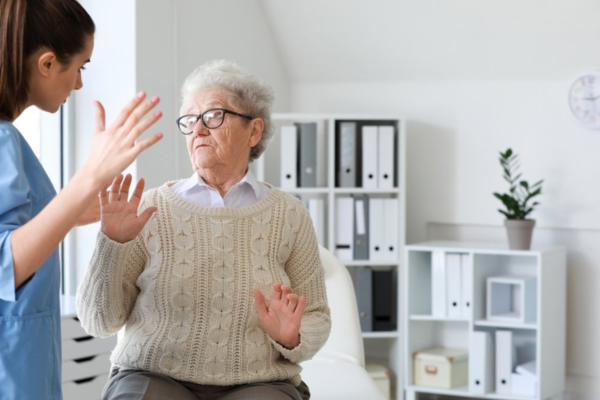
If you are wondering why people have been searching for a nursing home abuse lawyer, you have come to the right place!
Nursing homes are trusted to provide care and support to elderly residents who can no longer live independently.
Unfortunately, not all nursing homes meet the standards of care required by law. In some cases, residents may become victims of abuse or neglect, leading to severe physical, emotional, and financial harm.
If you suspect nursing home abuse in Illinois, understanding the signs and knowing how a lawyer can help is essential for protecting your loved one.
Hi. In today’s blog, I will be talking about nursing home abuse in detail and explain how a lawyer can help you in a situation like this.
So, if you have been searching for that, you have reached the right place. Therefore, keep reading this blog until the end, and thank me later!
What is Nursing Home Abuse?

Nursing home abuse occurs when a resident is harmed intentionally or through neglect. Abuse can take many forms, including physical harm, emotional mistreatment, financial exploitation, and sexual abuse.
Illinois law protects nursing home residents, establishing residents’ rights and setting standards for care facilities.
Abuse often goes unreported because elderly residents may be too scared, ashamed, or unable to communicate their experiences.
Therefore, families must recognize the signs of abuse and act quickly to address the situation.
Nursing Home Abuse is Rising— Here’s What Data Says!
Nursing home abuse is a serious issue affecting thousands of vulnerable elders across the U.S., and the statistics are alarming.
A nursing home abuse lawyer can play a vital role in protecting your loved ones and ensuring justice. To understand the severity of the problem, let’s look at some data:
- The World Health Organization (WHO) estimates that 1 in 6 older adults worldwide experience some form of abuse in community and institutional settings, including nursing homes.
- A study by the National Center on Elder Abuse (NCEA) found that up to 44% of nursing home residents report being victims of abuse or neglect.
- According to federal statistics, elder abuse cases have surged by 84% between 2017 and 2021, showing a disturbing trend.
These numbers reveal a troubling reality—many elders are left vulnerable to physical, emotional, financial, and even sexual abuse. Shockingly, many cases go unreported due to fear or lack of awareness.
This is why families must take action. A skilled nursing home abuse lawyer helps uncover signs of abuse. Moreover, they also fight for the compensation and accountability you deserve.
Furthermore, legal intervention ensures responsible parties are held accountable and promotes safer care environments for others.
Common Signs of Nursing Home Abuse
There are several signs of abuse to look out for in nursing homes.
Physical Abuse
First, physical abuse includes hitting, slapping, restraining, or any action that causes physical harm. Common signs include:
- Unexplained bruises, cuts, or burns.
- Frequent falls or fractures.
- Marks from restraints on wrists or ankles.
- Unexplained weight loss or dehydration.
Emotional or Psychological Abuse
Secondly, emotional abuse can be harder to detect because it does not leave visible marks. It involves verbal threats, humiliation, isolation, or intimidation. Therefore, look for these signs:
- Unusual mood swings or depression.
- Fear or withdrawal around specific staff members.
- Changes in sleeping patterns or increased anxiety.
- Reluctance to speak openly about their experiences.
Neglect
Third, neglect occurs when staff fail to provide the basic care to meet residents’ needs. For instance, signs of neglect include:
- Poor hygiene, dirty clothing, or unkempt appearance.
- Bedsores or pressure ulcers.
- Untreated infections or medical issues.
- Unsanitary living conditions, such as soiled bedding or unclean facilities.
Sexual Abuse
Sexual abuse in nursing homes, while less common, is a serious violation of residents’ rights. Warning signs include:
- Unexplained genital injuries.
- Diagnosis of sexually transmitted infections.
- Fear or discomfort around specific staff or residents.
Financial Exploitation
Finally, financial exploitation involves the illegal or improper use of a resident’s money or assets. Look out for:
- Sudden changes in financial accounts or wills.
- Unpaid bills despite adequate funds.
- Missing personal belongings, such as jewelry or cash.
- Residents appear confused about financial transactions.
Main Causes of Nursing Home Abuse

Now that you are aware of what nursing home abuse is all about let me tell you about the primary reasons why this heinous crime exists in the first place. Yes, just like everything else, there is also a cause behind this.
Here are some of the main factors contributing to nursing home abuse:
Lack of training
Some nurses may lack the necessary skills to provide complex care for residents with conditions like dementia. According to some studies, nurses who lack professional training and credentials are more likely to injure residents.
Understaffing
Because of cost-cutting measures or a shortage of suitable applicants, nursing homes frequently have an understaffed workforce.
There was particularly serious understaffing during the COVID-19 pandemic. Nearly 30% of assisted living facilities reported experiencing understaffing at least once since the start of the pandemic in 2022.
Economy
Finally, there comes greed. Generally, a reason behind the financial exploitation or torture. When financial abuse occurs, staff personnel and other individuals may approach elders, steal their credit cards, and forge checks in an attempt to seize their financial assets.
In certain states, nursing home inspectors and employees may not receive competitive pay, which can result in issues with understaffing.
Illinois Laws Protecting Nursing Home Residents
Illinois takes nursing home abuse seriously and has laws in place to protect residents. The Nursing Home Care Act outlines the rights of nursing home residents, including the right to be free from abuse and neglect.
Facilities are required to provide adequate medical care, proper hygiene, and a safe environment for residents.
In addition, Illinois law mandates that all nursing home employees report suspected abuse or neglect.
Family members and other individuals can file complaints with the Illinois Department of Public Health (IDPH), which investigates claims of abuse and neglect.
Moreover, violations of state or federal regulations can result in fines, penalties, and even facility closures.
Nursing Home Abuse Lawyer: How Can They Help Victims?
If you suspect nursing home abuse, consulting with an experienced Naperville nursing home abuse lawyer can be a critical step in protecting your loved one and holding the facility accountable.
Investigating the Abuse
Firstly, lawyers can gather evidence to support your claim, including medical records, witness statements, and facility inspection reports.
They may also work with experts to evaluate the care provided and identify Illinois nursing home law violations.
Filing a Legal Claim
In Illinois, victims of nursing home abuse or their families can file a lawsuit to seek compensation for damages, including medical expenses, pain and suffering, and emotional distress.
Furthermore, under the Illinois Wrongful Death Act, families can also pursue claims if abuse leads to the death of a loved one.
Negotiating Settlements
Many nursing home abuse cases are resolved through settlements with the facility’s insurance company.
Moreover, a skilled lawyer will negotiate to ensure you receive a fair settlement covering the full extent of your losses.
Representing You in Court
Finally, your lawyer can take the case to court if a settlement cannot be reached. They will present evidence, argue your case, and fight for justice for your loved one.
Bonus: Steps to Take If You Suspect Nursing Home Abuse
If your loved one is being abused or neglected in an Illinois nursing home, take these steps:
- Report the Abuse: Notify the nursing home administration and file a complaint with the Illinois Department of Public Health.
- Document Evidence: Take photos of injuries, keep medical treatment records, and document changes in behavior or living conditions.
- Consult an Attorney: Contact DePaolo and Zadeikis personal injury lawyers to discuss your legal options.
- Remove Your Loved One: If the situation is urgent, consider relocating your loved one to a safer facility.
Nursing home abuse is a violation of trust that can have lasting consequences for victims and their families. Furthermore, recognizing the signs of abuse and taking immediate action is crucial to protecting your loved one and holding negligent facilities accountable.
Also read
- How a Car Accident Lawyer Can Help You After a Crash.
- Top Challenges Families Face in the U.S. Immigration Process.
- Rideshare Assault Statistics in Las Vegas: What the Numbers Tell Us.











0 Reply
No comments yet.